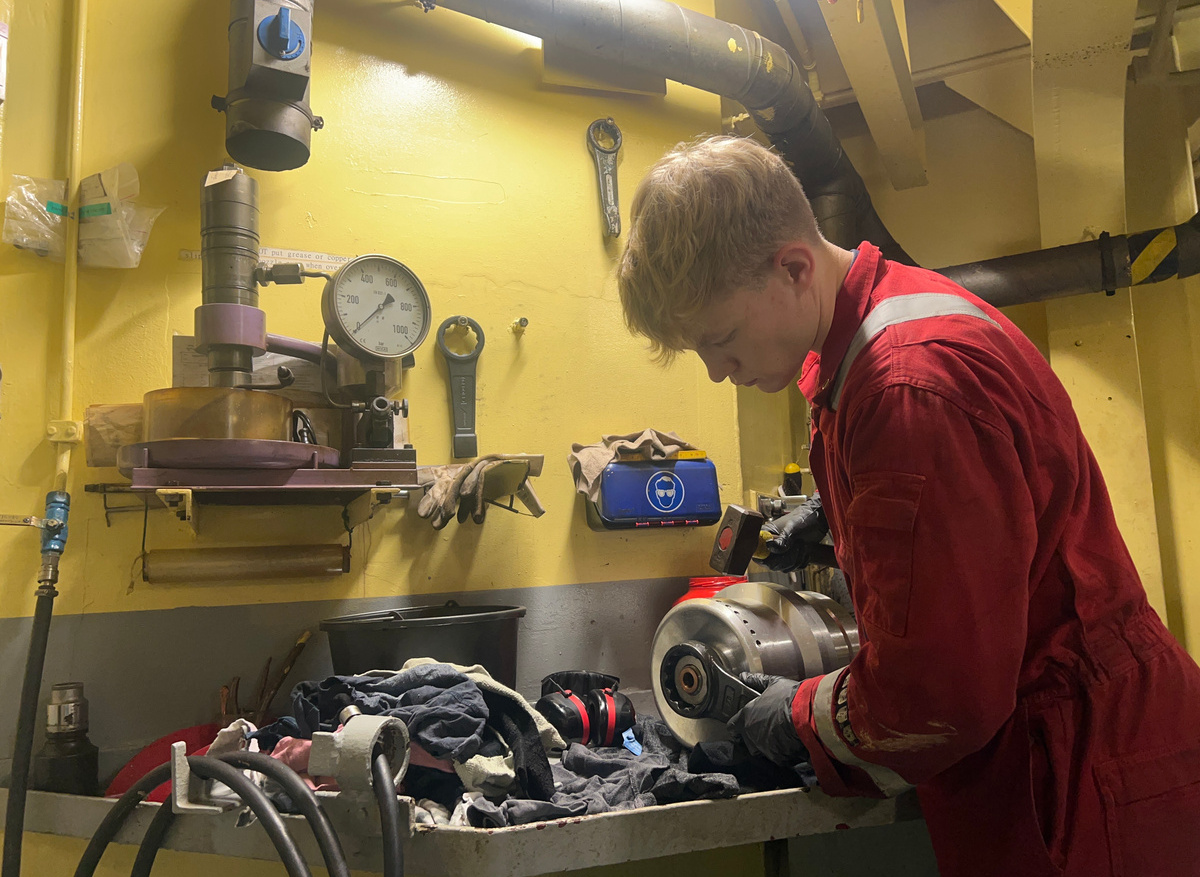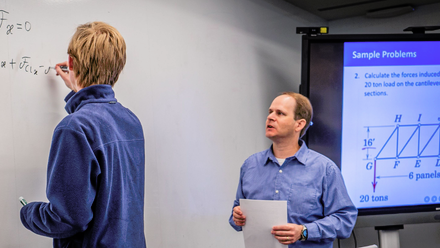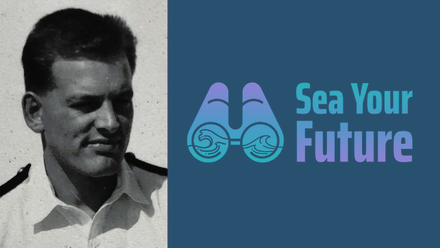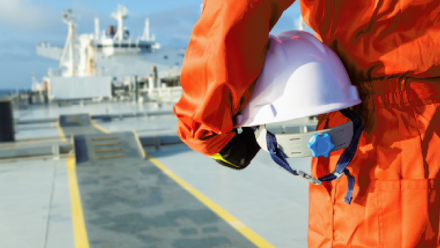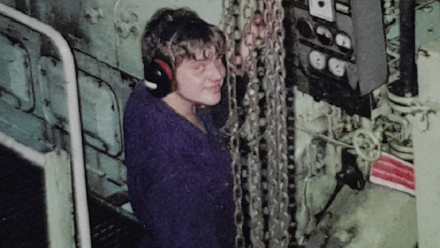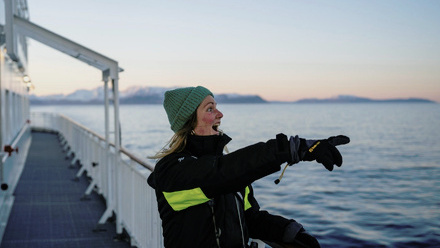Career Story: 4th Ship's Engineer
Oliver Lomas
My day
Every day is different on board. One day could consist of inspections and routine testing, another could be spent fixing broken down machinery, another could be spent doing computer-based work.
Although no day is the same, our days follow set patterns. My average day on board a vessel begins at around 6:20, where I wake up, shower and prepare to start work.
At 7:00, I meet with the other engineers in the engine control room to discuss the plans for the day and to prepare any safety documentation or equipment we will need. We also carry out a round of the engine room to ensure the machinery and systems on board are functioning as expected.
From 08:00 till 08:30, we head up to the mess room and have breakfast before resuming work until 10:00, when I usually meet the other crew members on the main deck for a half an hour break, before working until lunch. After lunch we work till 15:00 when we have our second coffee break before finishing for the day at 17:00. Dinner is at 17:30, then the evening is spent relaxing and calling home.
No night is the same either. Engineers take turns to take the watch from midday to midday and are responsible for any alarms that happen between these times. This could mean waking up multiple times in one night.
I have learnt that no vessel is the same. All vessels and crew follow the same company procedures and policies, but it is important to stay flexible to suit various circumstances, work styles and cultures.
My biggest lesson
I have learnt that no vessel is the same. All vessels and crew follow the same company procedures and policies, but it is important to stay flexible to suit various circumstances, work styles and cultures.
My proudest moment
My proudest moment is probably when I qualified and gained my Engineering Officer of the Watch Certificate of Competency. I was so happy when my examiner told me I passed – I finally had what I had worked towards for 4 years.
My career journey
I have ascended from an engineering cadet, starting my journey at 16 straight from secondary school, to a junior engineering officer on board offshore vessels.
I am also working towards professional registration. Although I am at an early stage of my career, I still believe that professional registration is a valuable goal.
What does success look like to me?
In the long term, career success looks like never stopping learning and trying to improve. In such an advanced age of technology, there is always learning to be done, and we can always improve ourselves rather than becoming satisfied and complacent.
I hope to become a chief engineer one day.
My career advice
Make sure you do your research. Nowadays it seems common for a lot of young people to throw themselves into degrees and courses that they end up regretting.
Why the IMarEST?
I think the best thing about IMarEST membership is the opportunities it gives its members. I enjoy access to webinars and events and the mentoring programme, as well as the chance to connect with like-minded individuals.

